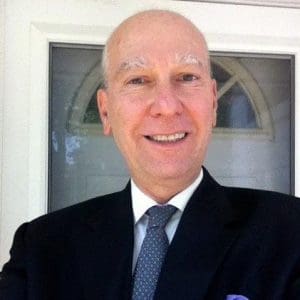KORACH 5779
ABOVE THE PEOPLE?
July 4, 2009
1 Tamuz (Rosh Chodesh) 5779
The opening verse in this week's Torah portion contains a verb without a subject. "And Korach took…" A Midrash speculates that he betook himself outside of the community.
Korach, a cousin of Moses and Aaron, had his issues. As an equal member of the tribe of Levi, he challenged the authority vested in the two brothers. He successfully assembled a group of two hundred and fifty "men of repute" with whose support he hoped to undermine the authority of Moses and Aaron and then set himself up in Moses' place. He was relentless in his criticism and rejected Moses' efforts to enter into any constructive dialogue. His attempted takeover, however, failed.
The tradition describes Korach's controversy as not "for the sake of Heaven," contrasting it to the intense debates that characterized the controversy between the schools of Hillel and Shammai. These opponents while heatedly challenging each other's interpretation of the Torah and the tradition did not demonize each other. The Talmud replicates this respect for opponents in the seemingly countless debates recorded in its pages. Korach's pursuit of personal aggrandizement is thus damned by our tradition, which extols honest debate and values different outlooks.
Korach's criticism of Moses, "Why have you raised yourself above the people?" (Numbers 16:3) contradicts God's praise of Moses as truly humble. The reality is that, throughout history, the more powerful the leader the more he tends to regard himself as a law unto himself. Moses thus warned future Israelite kings to have modest courts and to be bound by the Torah's teachings. Human nature being what it is, however, many of the kings of Judea and Samaria were excoriated by the prophets for viewing themselves as above the law.
One senses that, had Korach toppled Moses, he would have not replicated the latter's humility and his commitment to the word of God. The Torah, in this episode cautions us to be alert to slick talkers who resort to a strategy of demeaning, defaming and diminishing their opponents.
In the Israelite encampment, surrounded by 250 men of repute, Korach drew attention to his cause and made his ad hominem attack on Moses' integrity in order to seize leadership. What should concern us today is the proliferation of contemporary Korachs, hungering for leadership, who, with ease, disseminate their messages via twitter, mass media channels and robo-calls.
—
From the holy city of Jerusalem my best wishes for a Shabbat Shalom u'Mevorach, a Shabbat of peace and blessing.
Rabbi Arnold M Goodman
SH'LAH L'KHA 5779
IN WHOSE HANDS?
June 27, 2019
24 Sivan 5779
The Lord spoke to Moses, send men to scout the land of Canaan which I am giving to the Israelites… (Numbers 13: 1, 2)
The mission of the twelve scouts sent to reconnoiter the Promised Land ended in tragedy. It's a familiar story of the majority (10 of 12) first waxing poetic over the beauty and fertility of the land and then warning that its inhabitants were great warriors who dwelled in fortified cities that would be difficult, if not impossible, to conquer. This intelligence report rattled the people, who lamented that they were doomed to perish in the desert. They moaned that being liberated from Egypt was a deathtrap.
A very frustrated God told Moses that the older generation of the Exodus would indeed perish in the desert; it was their descendants who would reach, enter, and conquer the Land. It would take forty years, however, to prepare the new generation to accomplish this mission.
Whose idea was it to dispatch the scouts? The opening verse of this week's Torah portion is clear: God commanded Moses to send forth this mission. This obviously raises a disturbing question. God was certainly aware of the People's emotional fragility. He had ample evidence of their ambivalence about being in the desert, and their irrational desire to return to Egypt, which they fantasized as being welcoming and nurturing. Why, then, send forth a team of scouts who would come face-to-face with Canaan's military might and fortified cities? Was it not highly likely that the insecure former slaves, upon receiving that report, would be discouraged from continuing the journey and would lament being mired in the vast Sinai desert that would be their grave? Was God's ultimate plan to create a situation that would justify sweeping away the Exodus' adult generation?
In the opening verses in the Book of Deuteronomy, Moses recollects "and then all of you came to me and said let us send men ahead to reconnoiter the land, and bring back word on the route we shall follow and the cities we shall come to… and I selected twelve of your men one for each tribe (Deuteronomy 1: 22, 23).
In this accounting, God simply acceded to the Israelites' desire to learn more about the Promised Land. He accepted that people inevitably trod on the path that they have chosen. It's an affirmation that being blessed with free will endows us with significant influence to shape and order events in our lives. While we may not be the proverbial driven leaf that is randomly tossed to and fro by the wind, neither do we have total control.
There is a cost to this freedom of choice. Poor decisions often have negative, even tragic, consequences. The Exodus generation that hungered for information about the Promised Land could not handle what was set before it, and, in the subsequent panic, destroyed its future. There is truth in the saying, be careful for what you wish.
It's interesting to speculate whether the Israelites would have been better off without any prior knowledge of Canaan's inhabitants and of the struggle awaiting them in the campaign to inherit the ancestral land. With our determination to be masters of our destiny, we long for information to ease our path. Such information, however, is often a hazard since we seldom have the full picture; much is inevitably left to chance. In life we are shaped and reshaped both by events we control and by those beyond our influence.
While it is only God who has the whole world in His hands, may we utilize the knowledge and power we do possess to make His world, and ours, a place of decency, fairness and true shalom.
—
From the holy city of Jerusalem my best wishes for a Shabbat Shalom u'Mevorach, a Shabbat of peace and blessing.
Rabbi Arnold M Goodman






























